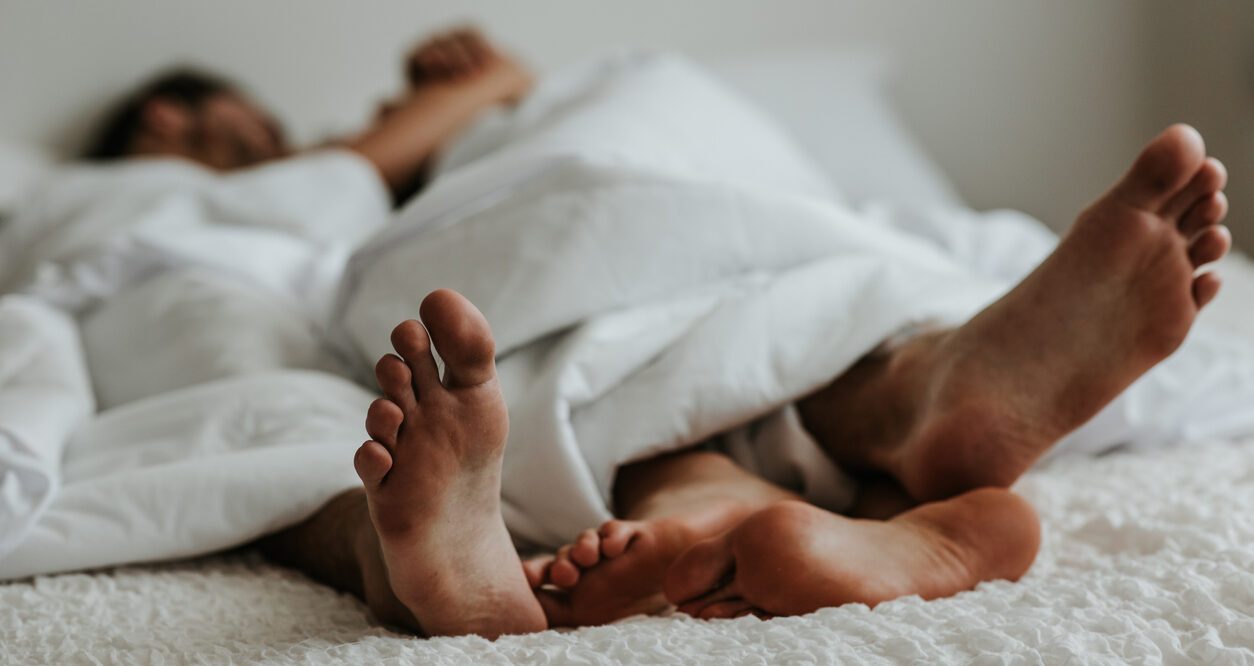Feeling Weak After Every Orgasm?

Rebecca says, “I feel weak after every orgasm. Do I have POIS? What can I do about that?” Read more to find out what Josh Spurlock, Counselor & Sex Therapist, says about the symptoms and treatment of POIS, the rarity of the syndrome, and how a sex therapist can help with weakness after orgasm.
TORI
Welcome to MyCounselor Online. I’m Tori, and this is Asking for a Friend. In this video, we’re sitting down with Sex Therapist Josh Spurlock to talk answer one of your questions, about feeling weak after orgasm. Keep watching.
JOSH SPURLOCK ON POSTORGASMIC ILLNESS SYNDROME (POIS) SIGNS & SYMPTOMS
There’s good news and maybe bad news with this question.
The bad news is that there’s not really any known cure for POIS, which is a syndrome where you experience flu-like symptoms following an orgasm. There can be fatigue and body aches that follows an orgasm, which can last from minutes, to hours, to as much as a day or so.
HOW COMMON IS POIS?
That’s the good news. It’s incredibly rare. And so it’s probably unlikely that that’s what Rebecca is experiencing, especially as a female. It’s a little bit more common in men, but even in men, it’s very rare.
The likelihood that as a female, you experiencing POIS is almost non existent. You’re more likely to be eaten by an alligator than you are to have POIS; so that’s probably not what’s going on. There is encouragement and hope to be found there.
SEX THERAPY CAN GET TO THE CAUSE OF FEELING WEAK AFTER ORGASM
There are a lot of questions that I would have as a sex therapist to troubleshoot this. I would want to know:
– Has this been your experience for your entire life?
– Has this happened with every orgasm you’ve ever had?
– Did this onset at some point during your experience?
– What happened around the time that it started?
– Does it come and go?
– Do you have it sometimes and not at other times?
So there’s a lot of detailed questions that a sex therapist would need to ask in order to troubleshoot what is going on in this case. We can probably rule out that syndrome because it’s so incredibly rare, especially for women. But we would know more after asking more questions.
TORI
So what would you recommend that she do practically right now in that situation?
JOSH SPURLOCK ON CONNECTING WITH A SEX THERAPIST
Practically, she’s going to have to be aware of what she’s experiencing within her body. And if she has the resources to connect with a sex therapist, to really dig into troubleshooting it further.
That would be the best case scenario. A sex therapist will know what questions to ask to figure out exactly what’s going on, and give a tailored solution to address that.
HOW TO DEAL WITH POIS
If you don’t have access to sex therapy as a resource, you really just have to be aware of of the fact that this is a part of your experience, and that even if it is that syndrome, there’s not anything to do other than to just wait it out, take it easy, and do the normal things that we do to treat fatigue. For example, we stay hydrated, get rest and take it easy. If it really were this syndrome, that’s the only option that you have at this juncture.
TORI
Absolutely. Ultimately, sex was created by God for us, and for our pleasure. He wants us to have pleasure in that, and for that to be a joyful part of our marriage. We want that for you, Rebecca, and for everyone who is in a marriage relationship.
newsletter
Sign up and receive my updated article posts about neurotheology, sex therapy, and therapeutic friendship.
No charge. No spam. Only love.
View this profile on InstagramJosh Spurlock (@talk2spurlock) • Instagram photos and videos
© Josh Spurlock|Privacy Policy|Terms|sitemap|Mycounselor.online